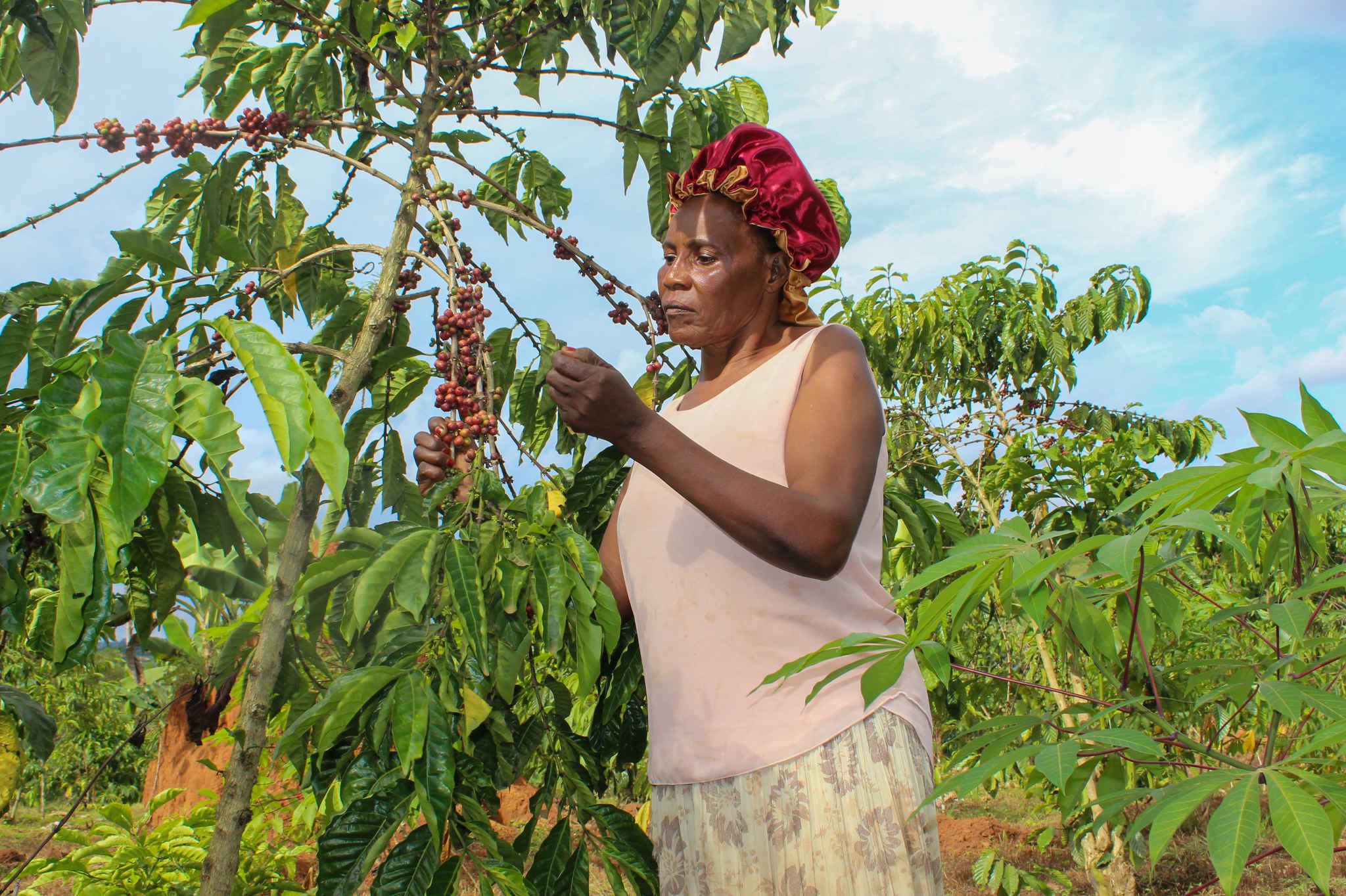
Nakisanze Segawa, GPJ Uganda
Nakajubi Susan picks coffee berries from her farm in Maya village, Wakiso district. Nakajubi says she has had to let some of her farm workers go because she can’t afford to pay them.
WAKISO, UGANDA — As Nakajubi Susan pulls a coffee tree toward her to harvest its radiant red berries, she worries that this year she may earn less from her harvest. Nakajubi expects about 5,700 Ugandan shillings (1.53 United States dollars) per kilogram of dry coffee berries instead of 7,000 shillings (1.87 dollars) from the Central Coffee Farmers Association (CECOFA), an association of farmers from central Uganda that has been exporting her coffee for almost 18 years.
“My buyers tell me the changes are due to the shrinking market of Uganda’s coffee because of the war in Sudan,” says Nakajubi.
Each harvest season, Nakajubi’s buyers also offer her 1 million to 2 million shillings (268 to 537 dollars) as a preharvest payment. She relies on this money to buy home basics and pay the workers who take care of her 30-acre farm. But this preharvest payment has already gone down by almost 50%.
“Now I have to let go of some [farm] workers because I can’t afford them,” she says.
Nakajubi worries that if the conflict continues and if coffee exporters don’t find alternative markets, this might become a permanent situation.


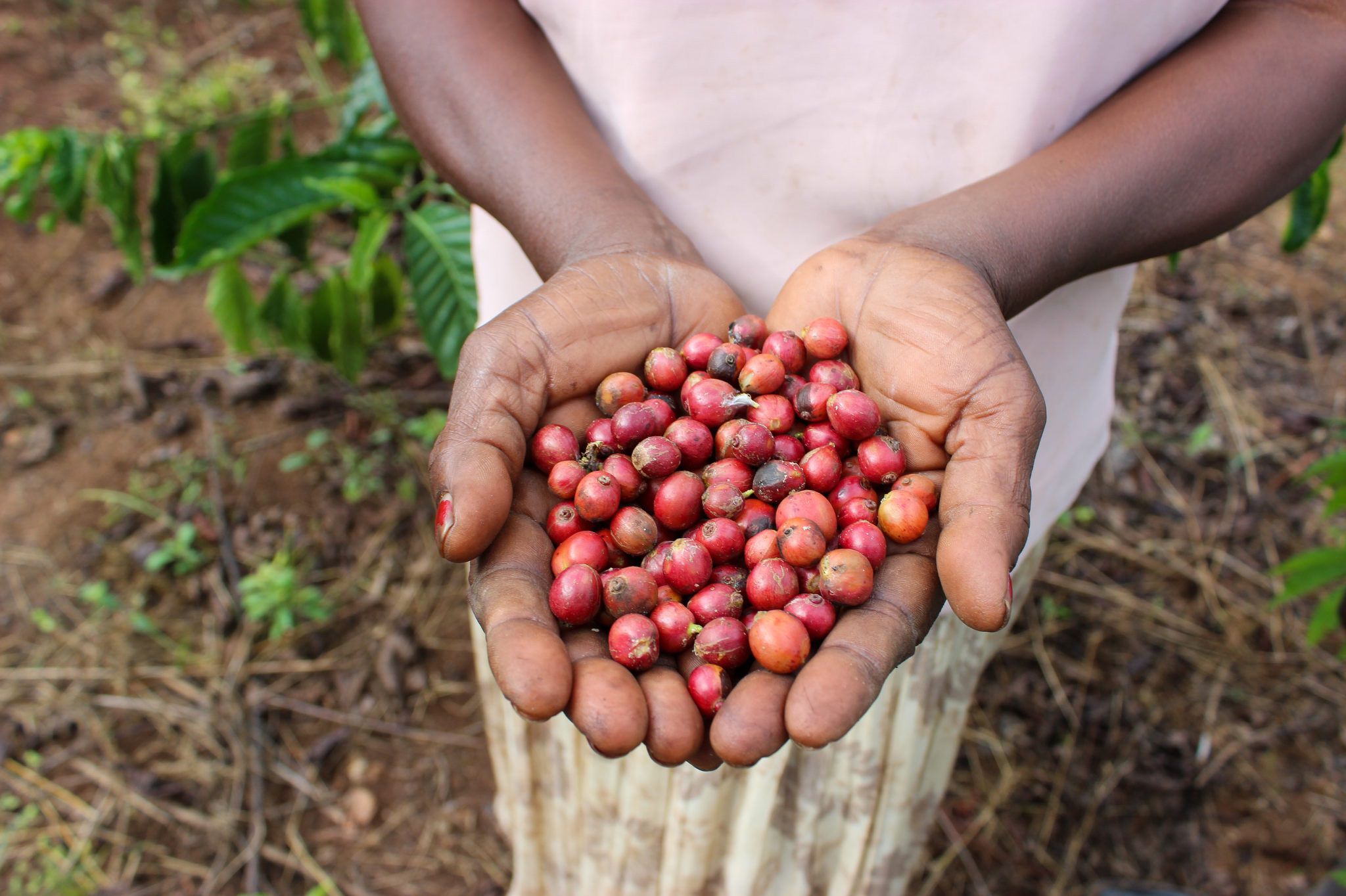
The armed conflict that’s stirring concern among coffee farmers in Uganda erupted in April between the Sudanese Armed Forces and the Rapid Support Forces, a paramilitary group. Over the last few months, it has left hundreds dead (about 730 by May, according to the Sudanese Ministry of Health) and displaced over 1.5 million people within and outside Sudan, according to data from the United Nations High Commissioner for Refugees.
In Uganda, it has triggered reductions in exports and farmers’ revenues, highlighting Sudan’s significance as a key market for Uganda’s coffee. The situation has also compelled exporters to diversify their markets to safeguard against future interruptions.
In 2022, Sudan was the biggest buyer of Uganda’s coffee in Africa, according to the Uganda Coffee Development Authority (UCDA), a government agency that monitors quality coffee production in Uganda. From January this year, Sudan has maintained its position as the biggest buyer in Africa, but in April its market share dropped to 10.59% from 17.66% in March, then slipped further to 7.3% in May.
Although Sudan’s market share improved in June and July, exporters say they are still feeling the effects of these fluctuations. Buule Ronald, the executive director of CECOFA, the association Nakajubi sells her coffee to, works with over 5,000 small-scale Robusta coffee farmers. He says since the conflict in Sudan started, the association’s access to Sudan’s market has dropped. Buule’s association usually buys from farmers in Uganda, then sells to companies in Sudan that distribute to smaller shops.
“My buying capacity from farmers has reduced by 40% because we are stuck with lots of coffee at our stores which we can’t sell in large volumes as we used to before the conflict started,” he says.


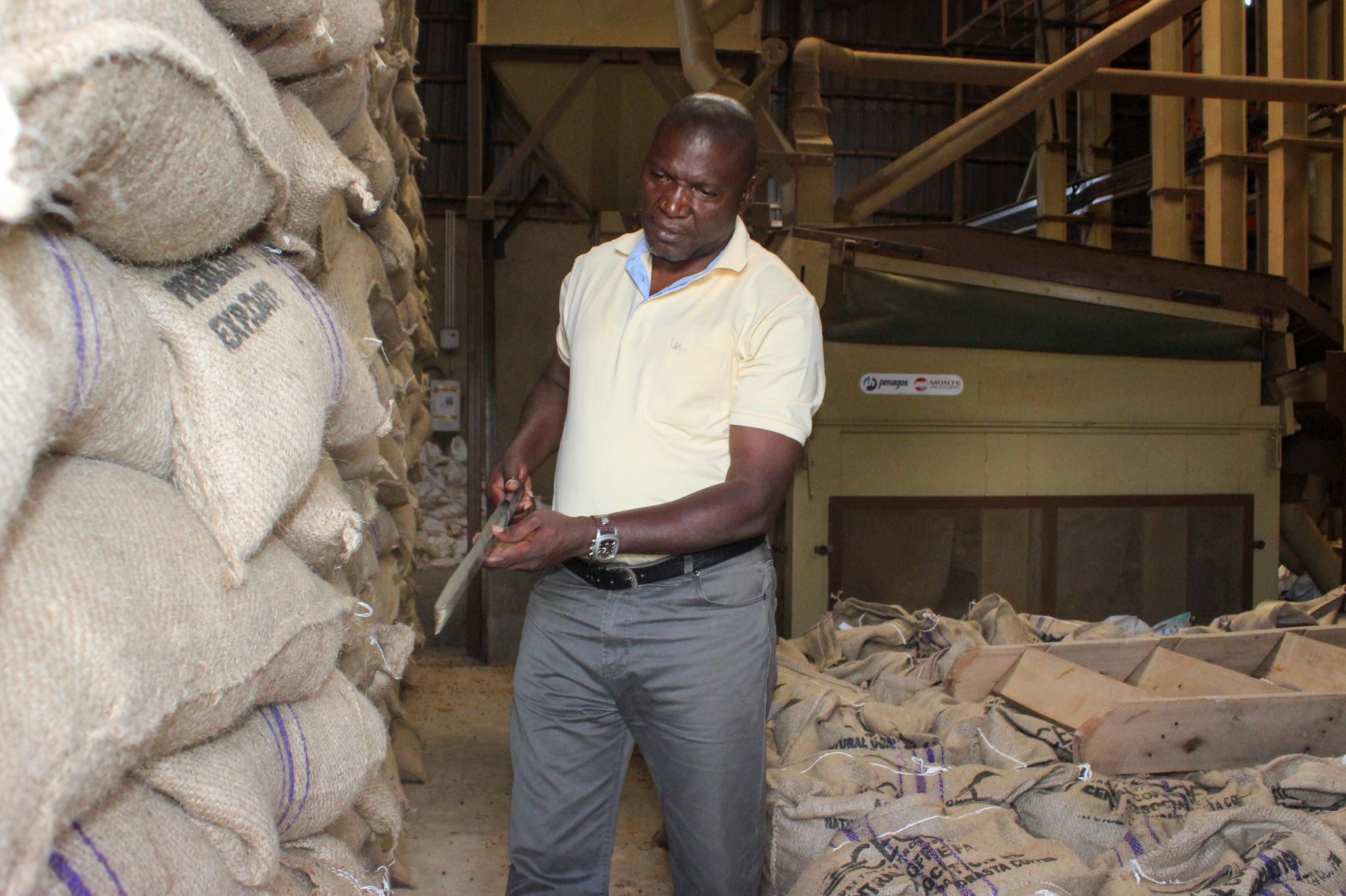


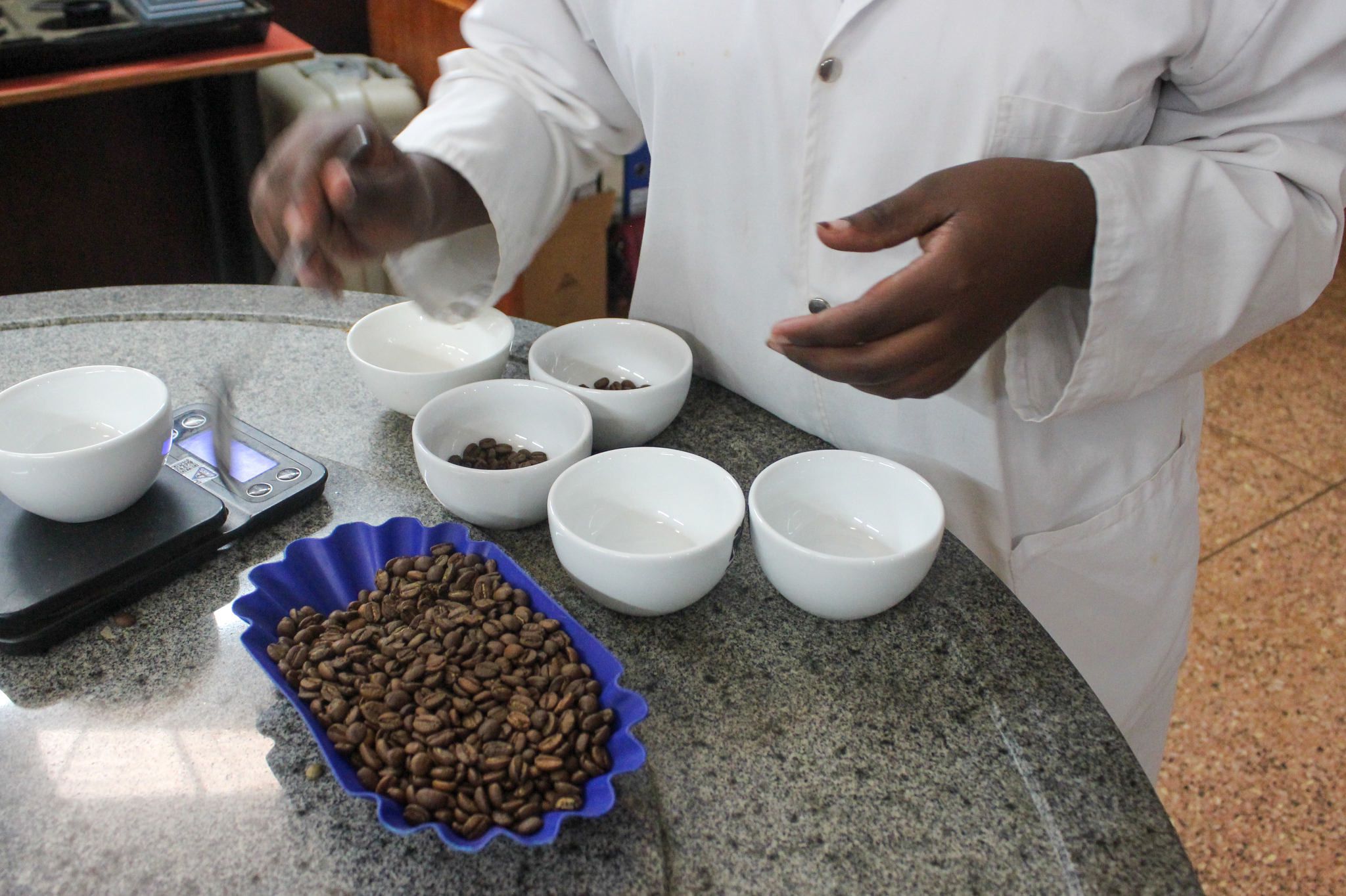
Despite these challenges, Buule says they never turn farmers away with their coffee. The association still buys. But they pay the farmers less, then store the coffee in warehouses designed to maintain the optimal temperature, so the coffee doesn’t go bad.
Deus Nuwagaba, the deputy executive director of operations management at the National Union of Coffee Agribusiness and Farm Enterprises (NUCAFE), a coffee export company in Uganda, says Sudan was the biggest buyer of his company’s coffee. But this has changed.
“Since the conflict started in April, our [coffee] shipment to Sudan reduced from five to three containers a month,” he says. “Some of the people displaced, we are told, were our buyers, people who would consume [Ugandan] coffee.”
The conflict has hindered transportation of coffee from the port to the mainland, Nuwagaba says. Risky and slow transport has increased the cost of storage at the port and forced exporters to push the additional costs onto farmers.
Semakula Jude Tadeo, a farmer who grows coffee on a 3-acre plot with his brother, says he had expected to earn 10,000 to 15,000 shillings (about 2.70 to 4 dollars) per kilogram from his coffee. But in April, prices went down. Now he earns about 9,000 shillings per kilogram (about 2.40 dollars).
Tadeo, who sells his coffee to NUCAFE, says that not only have his earnings decreased, but he also now has to wait longer for his payments.
“We would get paid three days after delivering our coffee to the company, but of late it now takes seven days or more. Because of this delay, sometimes we are not able to buy fertilizers or pay workers on time,” he says.
Tadeo keeps six cows on his farm and grows a few vegetables, which allows him to supplement his income. But for expenses that require substantial funds, such as school fees for his children, he is now forced to take out loans — something he hasn’t done in a while, he says. Tadeo hopes the government will reduce fertilizer taxes to at least lower the cost of growing coffee for farmers now that they are earning less. He is also hopeful that export companies will look for alternative markets.
While exporters could redirect their coffee to other markets, there are factors that make Sudan a unique market, Buule says.
“There are few middlemen, making it a little less competitive, and it’s nearer with low shipping costs compared to Europe, which buys most of our coffee,” Buule says.
Nuwagaba agrees. “It’s less stringent with quality and environmental concerns, which are not a big deal as it is with Europe and America,” he says.
Emmanuel Lyamulenye Niyibigira, the executive director of the UCDA, says although the war in Sudan affected farmers, the situation is only temporary.


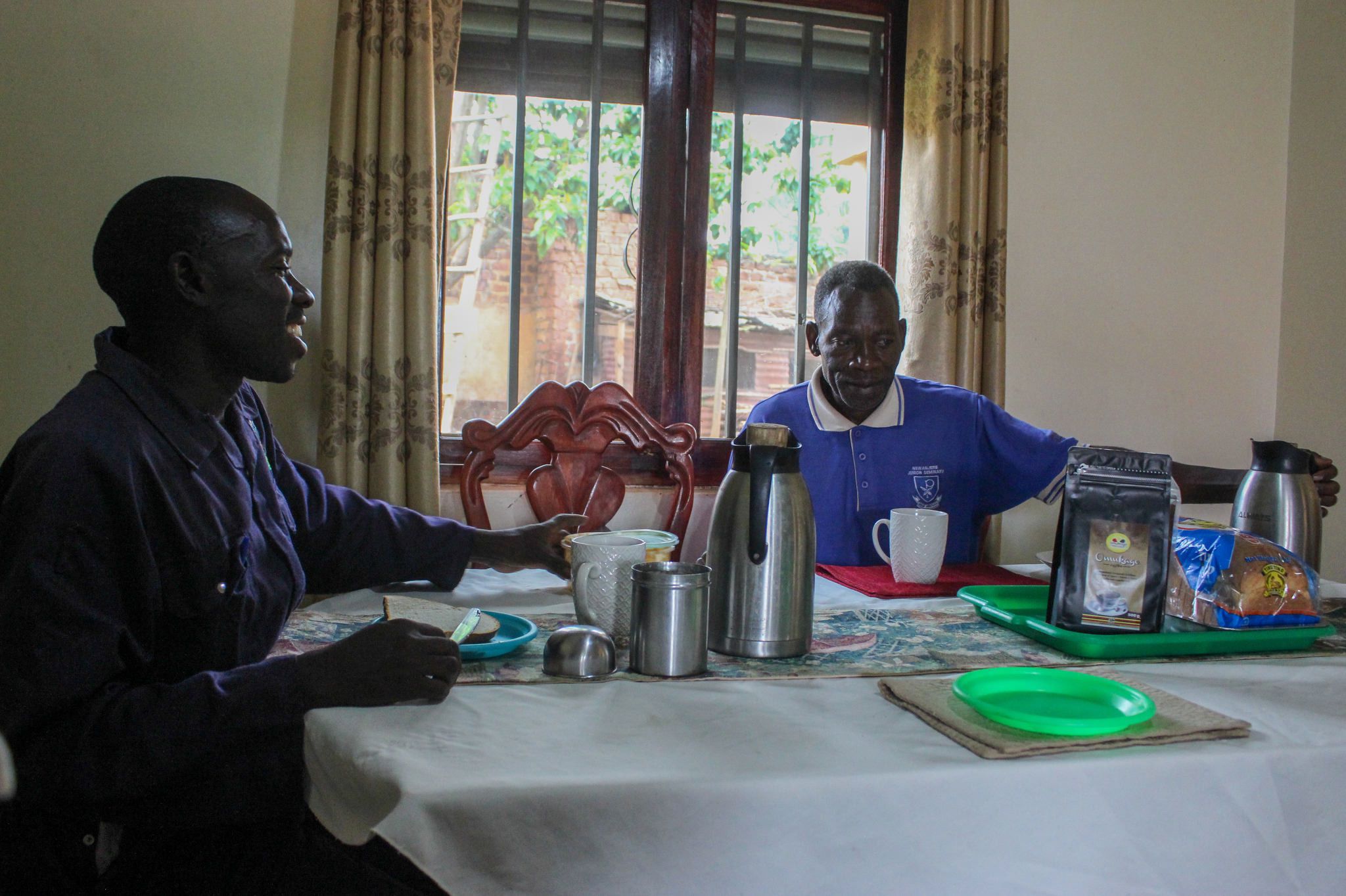
“Now it’s picking up,” he says. “In a few weeks, farmers will get more money.”
While things might get better, Buule is not waiting around. For him, the situation has highlighted the need for his export company to expand. Already, the company is eyeing other markets such as the U.S. When he spoke to Global Press Journal, he had just returned from a trip to the U.S. in search of this new market.
“There is a global shortage of 7 million bags of coffee, so the possibility of new markets is there,” he says. “But it takes a while to establish and access such markets. Sometimes it takes years to build the connections and trust to access such markets.” But they are working on penetrating them.
He says it’s important to expand now so they are better prepared for similar market challenges in the future. Expanding would also mean a rise in the price of coffee because of the increased demand, Buule says. More buyers could mean more money for farmers.
Nuwagaba’s company is also considering selling to other markets such as Asia, Europe and North America. While he anticipates some challenges penetrating these new markets, he is hopeful.
For now, as Nakajubi waits for the situation to improve, she grows other crops such as maize, matooke and cassava, both for home consumption and for sale, which helps supplement her income now that she isn’t getting as much money as she used to. But if her buyers find new markets, she wants to expand her coffee farm.
Nakisanze Segawa is a Global Press Journal reporter based in Kampala, Uganda.
TRANSLATION NOTE
Nakisanze Segawa, GPJ, translated some interviews from Luganda.






